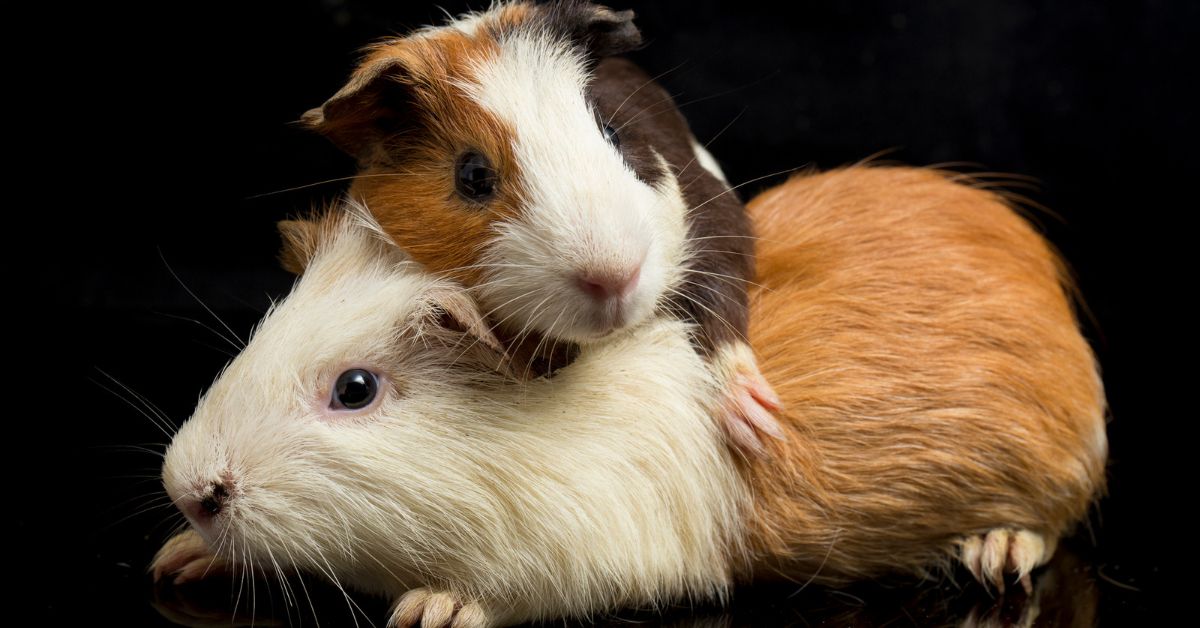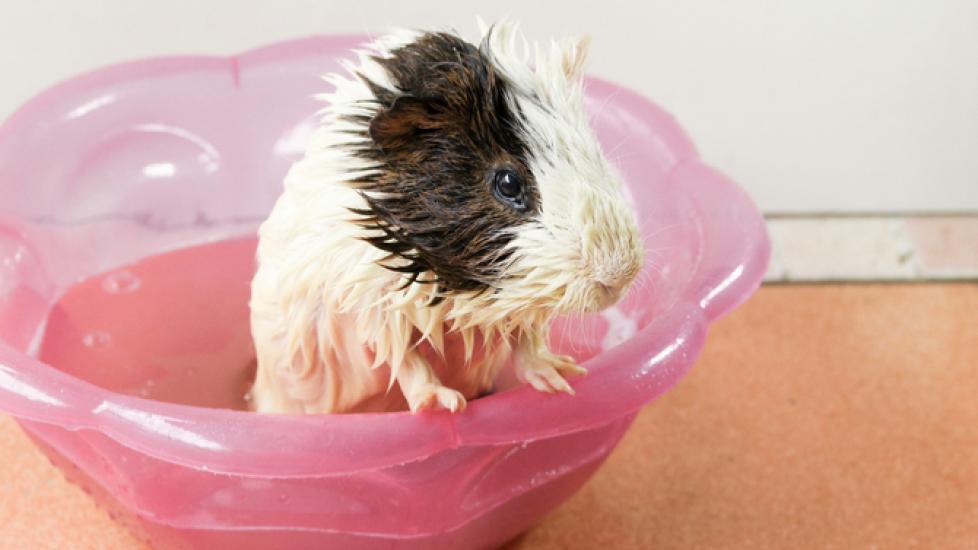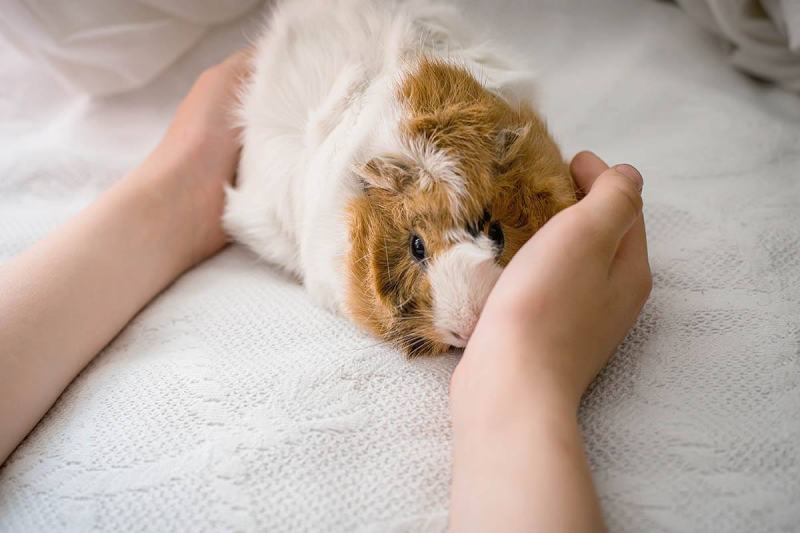Guinea pigs, often affectionately called cavies, are delightful pets, known for their playful behavior and endearing personalities. These charming little creatures require attentive care to live a long, healthy life. This comprehensive guide will provide you with the necessary information to ensure that your guinea pig thrives and enjoys a happy existence.
READ MORE:
A Comprehensive Guide to Feeding Your Guinea Pig: From Hay to Treats
Funny Guinea Pig Names
Choosing the Perfect Name for Your Guinea Pig
Understanding Guinea Pig Purring: A Guide to Their Vocalizations
Contents
- 1 Housing and Setup: Creating a Safe Haven for Your Guinea Pig
- 2 Nutrition: Feeding Your Guinea Pig a Balanced and Healthy Diet
- 3 Exercise and Enrichment: Keeping Your Guinea Pig Active and Stimulated
- 4 Grooming and Hygiene: Maintaining Your Guinea Pig’s Health
- 5 Socialization and Handling: Building a Strong Bond with Your Guinea Pig
- 6 Health and Vet Care: Recognizing Signs of Illness and Seeking Help
- 7 Conclusion
Housing and Setup: Creating a Safe Haven for Your Guinea Pig

Creating a suitable living space for your guinea pig is essential to their well-being. Here are some important considerations when setting up their home:
Choosing the Right Cage
When choosing a cage for your guinea pig, several factors should be taken into account:
- Size: A larger cage is always better! For one guinea pig, aim for at least 7.5 square feet of floor space. For each additional guinea pig, double the size. This will allow them enough room to move freely and explore.
- Material: Solid-bottom cages, made of plastic or metal, are preferable. Wire-bottom cages can be uncomfortable and may pose health risks for your guinea pig.
- Features: Ensure the cage includes multiple levels to encourage climbing, as well as a hay rack, food dish, water bottle, and a hideout to make your guinea pig feel secure.
Cage Location
The location of the cage is important for your guinea pig’s comfort:
- Away from drafts and sunlight: Guinea pigs are sensitive to temperature changes, so place their cage in a draft-free area, out of direct sunlight.
- Quiet environment: Since guinea pigs have sensitive hearing, avoid placing their cage near loud noises, which could cause stress.
Cage Maintenance
To ensure your guinea pig’s living space remains clean and hygienic, regular maintenance is key:
- Daily cleaning: Spot clean the cage daily by removing soiled bedding, leftover food, and uneaten hay. This will help reduce bacteria and odors.
- Weekly deep cleaning: Once a week, give the cage a thorough cleaning by washing all surfaces with a pet-safe disinfectant and replacing all bedding.
- Replace accessories regularly: Hay racks, food dishes, and hidey houses should be replaced periodically to prevent the buildup of bacteria.
Nutrition: Feeding Your Guinea Pig a Balanced and Healthy Diet
A proper diet is vital for your guinea pig’s health and vitality. Their diet should consist of hay, fresh vegetables, and small amounts of pellets. Here’s how to balance their food intake:
Hay
Hay is the most important part of a guinea pig’s diet, providing essential fiber for digestion. Timothy hay is the recommended choice due to its low calcium and sugar content. Ensure that fresh hay is available to your guinea pig at all times.
Vegetables
Fresh vegetables should account for about 10-15% of your guinea pig’s diet. These vegetables provide essential nutrients and variety:
- Leafy greens like romaine lettuce, spinach, and cilantro should form the bulk of their vegetable intake.
- Other vegetables such as bell peppers, carrots, and cucumbers are great additions.
- Avoid toxic vegetables such as potatoes, onions, and avocados, which can cause digestive issues.
Pellets
Pellets should make up about 15-20% of your guinea pig’s daily intake. Choose pellets made specifically for guinea pigs, containing high fiber content and free from sugar, seeds, or nuts.
Exercise and Enrichment: Keeping Your Guinea Pig Active and Stimulated

Guinea pigs need regular exercise and mental stimulation to remain happy and healthy. Here’s how to keep them engaged:
Playtime
Allow your guinea pig at least an hour of supervised play outside their cage every day. Ensure the area is safe and free of hazards.
Toys
Provide a variety of toys, such as tunnels, chews, and balls, to keep your guinea pig entertained. Rotate toys to prevent boredom.
Natural Behaviors
Encourage your guinea pig’s natural instincts by scattering food and hay around their cage for foraging, which will keep them mentally stimulated and active.
Grooming and Hygiene: Maintaining Your Guinea Pig’s Health

Regular grooming and hygiene are important to your guinea pig’s well-being:
Bathing
Guinea pigs generally don’t need frequent baths. Only bathe them if they become excessively dirty, using lukewarm water and a mild pet shampoo.
Nail Trimming
Trim your guinea pig’s nails regularly to avoid discomfort and injury. Use small animal nail clippers to carefully trim the tips of their nails.
Brushing
Regular brushing helps prevent matting and removes loose hair. Short-haired guinea pigs may need weekly brushing, while long-haired breeds may require daily care.
Socialization and Handling: Building a Strong Bond with Your Guinea Pig

Guinea pigs are social animals and thrive with regular interaction. Here’s how to foster a strong relationship with your guinea pig:
Handling
Always handle your guinea pig gently and support their body when picking them up. Begin with short, gentle handling sessions, gradually increasing the time as they get more comfortable.
Bonding Time
Spending time with your guinea pig, talking to them, offering treats, and playing together strengthens the bond between you.
Health and Vet Care: Recognizing Signs of Illness and Seeking Help
Despite your best efforts, guinea pigs can still become ill. Watch for these common signs of illness:
- Loss of appetite
- Weight loss
- Lethargy
- Breathing difficulties
- Discharge from the eyes, nose, or mouth
- Behavioral changes
If you notice any of these symptoms, take your guinea pig to a vet immediately. Routine check-ups with a small animal veterinarian are also recommended to maintain their overall health.
Conclusion
Guinea pigs make wonderful companions, but they require attentive care to ensure they live a happy and healthy life. By providing them with the right housing, a balanced diet, exercise, and regular grooming, you’ll set them up for a long, joyful life. Remember to always consult a veterinarian for any specific concerns. With love and proper care, your guinea pig will bring joy to your home for years to .
